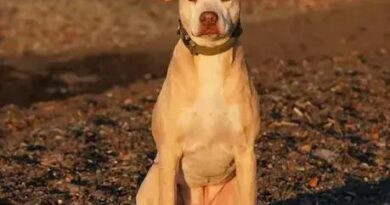What is animal first-aid basics
Understanding Animal First-Aid Basics
Animal first-aid basics refer to the essential skills and knowledge required to provide immediate care to pets in emergencies. This includes recognizing signs of distress, understanding how to stabilize an injured animal, and knowing when to seek professional veterinary help. Familiarity with these basics can make a significant difference in the outcome of an emergency situation.
Common Emergencies in Pets
Pets can face various emergencies, including cuts, bites, poisoning, and heatstroke. Understanding the common types of emergencies that can occur is crucial for any pet owner. Each situation requires a specific response, and being prepared can help you act quickly and effectively when your furry friend needs assistance.
Essential First-Aid Supplies
Having a well-stocked first-aid kit is a cornerstone of animal first-aid basics. Essential supplies include bandages, antiseptic wipes, tweezers, and a muzzle. Additionally, having a pet thermometer and emergency contact numbers for your veterinarian can be invaluable in a crisis. Regularly check and replenish your kit to ensure you are always prepared.
Assessing the Situation
When faced with an emergency, the first step is to assess the situation. Check for any immediate dangers to yourself and the animal. Look for signs of injury or distress, such as bleeding, difficulty breathing, or unresponsiveness. Understanding how to evaluate the severity of the situation is a key component of animal first-aid basics.
Performing CPR on Pets
Cardiopulmonary resuscitation (CPR) can be a lifesaving technique for pets in cardiac arrest. Knowing the correct method for performing CPR on dogs and cats is vital. This involves chest compressions and rescue breaths, tailored to the size of the animal. Familiarizing yourself with these techniques can prepare you for a critical moment when every second counts.
Dealing with Cuts and Wounds
Cuts and wounds are common injuries that require immediate attention. Cleaning the wound with saline solution and applying a sterile bandage can help prevent infection. Understanding how to properly care for minor injuries is an essential part of animal first-aid basics, ensuring your pet receives the best possible care before reaching a veterinarian.
Recognizing Signs of Poisoning
Poisoning can occur from various sources, including household chemicals, plants, and certain foods. Recognizing the signs of poisoning, such as vomiting, seizures, or lethargy, is crucial. If you suspect your pet has ingested something toxic, knowing how to respond quickly can save their life. Always have the contact information for a poison control hotline readily available.
Managing Heatstroke in Pets
Heatstroke is a serious condition that can affect pets, especially in hot weather. Understanding the symptoms, such as excessive panting, drooling, and weakness, is essential for prevention and treatment. Cooling the pet gradually and providing water are critical steps in managing heatstroke, highlighting the importance of knowing animal first-aid basics.
When to Seek Veterinary Help
While knowing animal first-aid basics is invaluable, there are times when professional veterinary help is necessary. Understanding when to seek help, such as in cases of severe injury, persistent vomiting, or signs of shock, can be crucial for your pet’s health. Always err on the side of caution and consult a veterinarian when in doubt.
Educating Yourself and Others
Continual education on animal first-aid basics is vital for all pet owners. Attending workshops, reading books, and watching instructional videos can enhance your knowledge and skills. Sharing this information with other pet owners can create a community of well-informed caregivers, ultimately benefiting the health and safety of pets everywhere.



